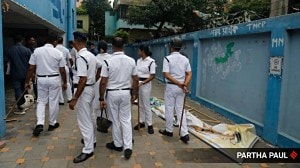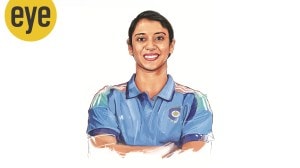Homecoming: one village jokes, the other mourns
This is a tale of two towns trying to pick up the pieces—one in hard times, the other with great expectations.After 10 days in relief c...

This is a tale of two towns trying to pick up the pieces—one in hard times, the other with great expectations.
After 10 days in relief camps, survivors returned to their homes in Nambiarnagar to start life afresh after the killer waves swallowed 764 of their near ones and neighbours.
The women came first, decked in the new sarees they got at relief camps, sporting traditional white chrysanthemums in their hair. Within minutes, the approach road was spilling over with villagers.
As they neared Nambiarnagar, children and youngsters broke into a run, eager to be home. Soon, the village was filled with laughter and loud banter as neighbours and friends got together.
The men were poking fun at a neighbour who had heard that the tsunami would strike again on the next full moon day. But the villagers simply would not allow him to spoil their day.
There was a little crowd around a goat that had given birth in their absence, even as a team of doctors and para-medicals from the Indian Navy East Coast Command, Vizag, who followed them into the village, watched in bewilderment.
By afternoon, the women had splashed water in front of what used to be their homes and made neat rangolis—some from talcum powder dumped at the relief camp.
‘‘My home is destroyed but it does not matter. We will rebuild it,’’ says Saraswati, whose husband Chitravel is presumed dead. Her brother Muthuswamy, who lives in the same village, will take care of her now.
As the sun peaked, the men started poking around inside ravaged houses, deciding on the ones that need to be repaired and others that have to be totally rebuilt. Then, one by one, they got down to work.
‘‘First, those without homes have to thought of. They will be accommodated in houses that can be used. All they need are four mud walls and a thatched roof and they will be at home. That is what we will build now,’’ says Kumarvelu, a fisherman.
Initially, there was a bit of apprehension about spending the night in total darkness without power supply. ‘‘The children and some women are afraid. But if everyone stays, I will too,’’ says Kayamma.
But as the evening began to creep in, Tamil Nadu Electricity Board employees arrived to loud cheers and started work on the powerlines.
As Saraswati puts it: ‘‘We have to pick up the pieces and get going. My children will help me build a mud house. I don’t want to go back to the relief camp again.’’
The contrast couldn’t be more poignant. It’s a harsh homecoming for Ranganathan in Akkaraipettai, one of the worst-hit villages in Nagapattinam. Home for this boat-driver is a blue plastic sheet tied to four poles. Lying nearby are his belongings: a water bottle, a torch, a packet of bread and a fishing net.
‘‘I came here this morning with my wife. But she went back to the relief camp because it is too hot here,’’ says Ranganathan.
Behind him, on the ravaged beach, hundreds of families have returned to find that bulldozers and cranes have levelled the remains of their mud hutments. There are no rangolis here, just more plastic sheets and bamboo poles that fishermen had bought, using cash doled out by the state government yesterday.
‘‘I am sick of being at the relief camp. It is worse than being a beggar. We want to return home as soon as possible,’’ says Jeevanan, a boat-owner.
Nearby, a boat engine repaired by Madras Engineering Group (MEG) personnel comes alive to muted cheers.
For many villagers, getting the engine working is just the first step.
‘‘Some people say it is too early to get back to business. But I feel once these fishermen start sailing, life will return to normal very soon. This is not about business, it is about starting their livelihood,’’ says Ramachandran, a boat-owner.
By evening, most of the women and children return to relief camps, afraid to stay back at night. Left in Akkaraipettai are hundreds of youngsters like Ranganathan, and those plastic sheets.



- 01
- 02
- 03
- 04
- 05




























